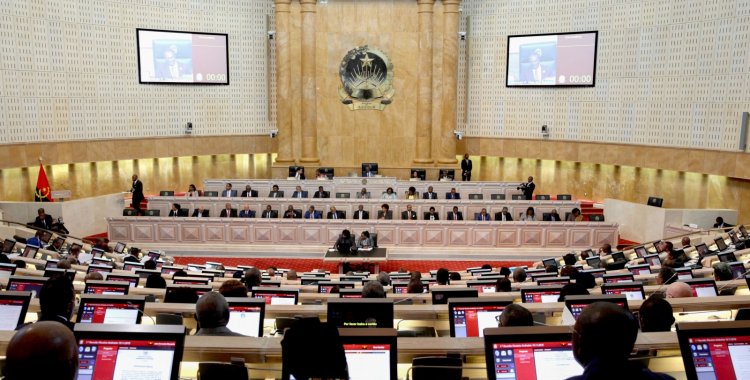"Regarding the wiretaps approved by the MP and which have now been flunked by the Constitutional Court, we believe that in fact the Constitution had been violated in what is enshrined in its Article 34 on the inviolability of correspondence and communications", said MP Mihaela Webba.
The deputy of the National Union for the Total Independence of Angola (UNITA), in opposition, recalls that the Constitution establishes that "the validation of the violation of correspondence and communications can only be done by a competent judicial authority".
The TC "understood that this judicial authority should not be the MP, but rather a guarantee judge," she said, adding: "We agree with this. We believe that anything that is an affront to citizens' fundamental rights, freedoms and guarantees should be effectively in its restriction for the purposes of criminal procedure," he said.
"You must be a judge of guarantee so that the rights, freedoms and guarantees of citizens are not called into question," he said.
The TC considered unconstitutional the rules of the law on cell identification or location and electronic surveillance that empower the MP to order, authorize and validate wiretaps and recording in a private environment.
In the ruling nº658/20, of 15 December, made public at the end of December and that Lusa had access this Tuesday, the plenary of judges of the TC upholds the action filed by the Angolan Bar Association (OAA), stating that such competence is of a judge of guarantee and not of the MP.
The law on mobile identification or tracking and electronic surveillance was approved in April 2020 by the parliament and following the OAA filed a case with the TC on the successive and abstract supervision of the constitutionality of the rules of that law.
According to the UNITA deputy, in Angola telephone tapping is used "outside the law, especially to people with political and economic interests," affirming that there is a feeling in the country that "we all live under illegal and inadmissible wiretaps in a state that claims to be governed by law.
"And, therefore, I think that this decision of the TC should make reflect, especially the Security and Intelligence Services of Angola that when they should work they didn't and they let the money of the country come out the way it did and that we stay in the crisis we are in," he noted.
"Therefore, the institutions should work for the benefit of the State and the Angolan citizens and not exactly for party-political interests, which is what happened in the matter of wiretapping," he said.
The law on cellular identification or tracking and electronic surveillance, by granting the Public Prosecutor's Office effective and real jurisdictional powers, "goes against the precepts established by the constitutional legislator," the TC states.
For his part, the deputy for the Popular Movement for the Liberation of Angola (MPLA), João Pinto, considered that the process of abstract and successive inspection of the constitutionality of the aforementioned law initiated by the OAA "shows that the republican institutions enshrined in the Constitution are exercising their powers, which is good".
The MPLA politician recalls that the rules that allow the MP to authorize the practice of acts that under the Constitution fall to a guarantee judge "are transitory, because this figure is not yet institutionalized.
Not being institutionalized (the guarantee judge) "this rule should be seen as transitory, because the rule of law cannot be prevented from performing its functions as a result of omissions that can be remedied and in this case by 2010 this institution did not exist.
"And we must also recognize that from 1992 to 1997 we did not have the Ombudsman, it was the MP that exercised this power, that is, the constitutional democratic transition also has gradual phases of the implementation of the Constitution itself and until now the guarantee judge has not been implemented," he explained.
"Being an unconstitutionality, in good rigor it is a situation that has been practiced until now by the MP and until the implementation of the guarantee judge, of course we are facing a situation that must follow what the Constitution says", he stressed.
João Pinto also said that the position of the TC shows that "the arguments that many used of the non-existence of guarantees in the Constitution, the non-existence of limits and the excessive concentration of power are fallacious".
"Because more and more the TC exercises its competencies, the actors who can supervise the exercise of legislative activity, the President of the Republic has exercised, the TC has exercised, there are no absolute powers, there are own and shared powers", he concluded.







